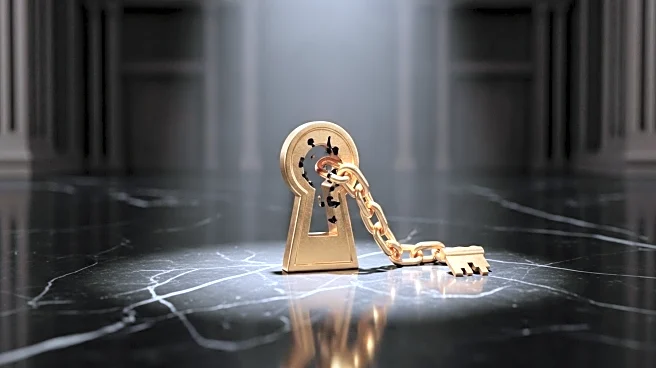What's Happening?
Han Hak-ja, the leader of the Unification Church, has been arrested in South Korea over allegations of bribery involving the former first lady, Kim Keon Hee. The church is accused of providing luxury gifts to Kim in exchange for business and political favors. Han, the widow of the church's founder Sun Myung Moon, denies the allegations, claiming they are false. The church has pledged to cooperate with authorities and aims to restore trust. Prosecutors have charged Han with improper solicitation, graft, and embezzlement, while her lawyers argue against the arrest due to her age and health.
Why It's Important?
The arrest of Han Hak-ja highlights ongoing concerns about the influence of religious organizations in political affairs. The case raises questions about the ethical boundaries between religious groups and political figures, potentially impacting public perception of the Unification Church. The allegations could lead to increased scrutiny of similar organizations and their interactions with political entities. This development may also affect South Korea's political landscape, as it involves high-profile figures and could influence public trust in political processes.
What's Next?
As the legal proceedings continue, the Unification Church may face further investigations and potential legal challenges. The case could prompt discussions on regulatory measures to prevent undue influence by religious organizations in politics. The trial of Kim Keon Hee, along with the ongoing investigation into Han Hak-ja, may lead to broader implications for political accountability and transparency in South Korea. The outcomes of these cases could influence future legislation and policies regarding the separation of religious and political activities.










